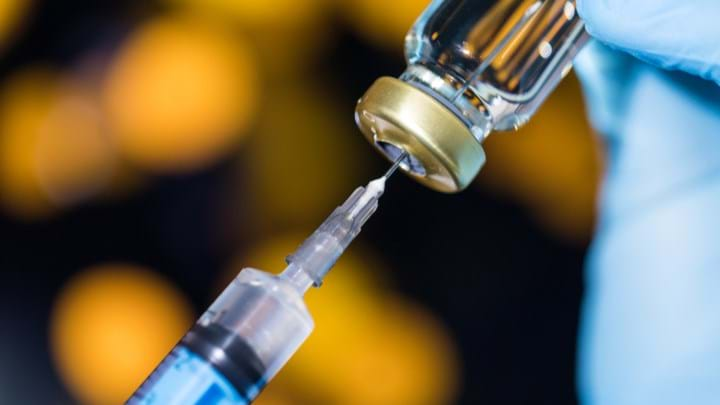‘Mass-produced cancer vaccine’ a step forward after US mice study

RESEARCHERS in the US have raised hopes for a universal cancer treatment after discovering non-specific mRNA vaccines can eliminate tumours in mice.
The University of Florida study, published in July in Nature Biomedical Engineering, found that mRNA vaccines were able to trigger an immune response in mice as if it were responding to a virus.
Typical mRNA vaccines, such as the Pfizer/BioNTech and Moderna Covid-19 vaccines, work by instructing the body to produce proteins that mimic those found in a pathogen. The immune system recognises these proteins as foreign and mounts a protective response. Instead, the Florida team’s vaccine triggered a broad immune response against the mice’s tumours without focusing on specific proteins. The vaccine generated immune responses against melanoma, bone cancer and brain cancer in the mice, either on its own or in combination with a PD-1 inhibitor, an existing immunotherapy. In some cases, it completely eradicated the tumours.
The researchers believe that the vaccine worked by prompting dormant T cells in the mice to multiply and kill the tumour. Duane Mitchell, a co-author on the study and co-director of the Wells Center for Brain Tumor Therapy at the University of Florida, likened it to “waking up” the immune response to cancer.
Penny Ward, a visiting professor at Kings College London’s Centre for Pharmaceutical Medicines Research, said the research “raises the potential for a mass-produced anti-cancer vaccine”.
Robin Shattock, the head of mucosal infection and immunity research at Imperial College London’s Department of Medicine, cautioned that while the research is “scientifically interesting”, the experiments only treated mice with very young tumours, which is “very different to treating cancer once a tumour is established”, since a tumour can be present for weeks before it is diagnosed. He said: “This is unlikely to form a primary therapeutic strategy for cancers in general.”
The researchers suggest that the treatment could be useful for preventing tumours from spreading following conventional cancer treatment.
The research team now hopes to progress to human clinical trials, though the journey from drug discovery to licensing can take up to 15 years.
Vaccine scepticism
Progressing their research may be challenging, however, after the US Department of Health and Human Services (HHS) announced major plans last month to scale back funding for mRNA vaccine research, terminating nearly US$500m worth of federal investments across 22 research projects. Long-time vaccine sceptic and US health secretary Robert F Kennedy Jr made the decision after claiming “the data show these vaccines fail to protect effectively against upper respiratory infections like COVID and flu”. Kennedy’s claims have been widely condemned as a misinterpretation of the data.
Recent Editions
Catch up on the latest news, views and jobs from The Chemical Engineer. Below are the four latest issues. View a wider selection of the archive from within the Magazine section of this site.




